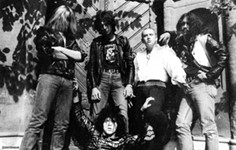Tire Tracks: What the Lege did
By Larry Schooler, Fri., July 27, 2007
Shrinking Gas Tax: Legislators remained loath to increase the most important source of transportation funding, despite its diminishing value. A proposal to raise the gas tax got nowhere. Another suggestion, to link the gas tax to rates of inflation or the consumer price index, also failed. On the other hand, legislators also balked at a summer gas tax holiday that would have cost the state an estimated $700 million this year alone. The Lege did approve about $3 billion in Proposition 14 bonds, which TxDOT pays off by using money it would have otherwise allocated for other projects -- it's what one TxDOT official calls a "payday loan." That could mean Central Texas transportation planners have more money to borrow for projects and less money in the future as that borrowed money is paid back.
More Bondage: Senate Joint Resolution 64 allows voters to consider in November whether TxDOT can issue $5 billion in bonds for future transportation projects -- and pay off that debt without touching the state highway fund. This could represent significant new funding for numerous transportation projects. If voters approve the proposition, the 2009 Lege can authorize TxDOT to issue the bonds, paying the debt off from its general revenue.
Local Control: HB 1857 gives Travis and other Central Texas counties more authority to regulate development around future transportation corridors (like parts of State Highway 130 that have yet to be built). Local officials, including state Sen. Kirk Watson, have wanted such authority to make sure new roads don't usher in development that would radically transform the surrounding area. Counties typically have limited powers to control land use.
Moving the Wires: SB 1209 will make it easier to relocate utilities needed to accommodate transportation improvements by expanding state reimbursements. TxDOT officials say that could help with work on any highway, such as Highway 290 East in northeast Travis Co., where utility relocations are expected to be costly. It could also mean that drivers on toll roads save some money in the future; before this session, toll roads weren't eligible for utility relocation reimbursement from the state.
Wind Shift: SB 12 will shift about $100 million a year for six years from the state highway fund to the Texas Emissions Reductions Plan. This is meant to improve air quality by reducing emissions and idling of vehicles. However, the extra funding comes from the State Highway Fund, which means less money for new transportation projects (which in theory could also improve air quality by moving people and goods more efficiently).
Rising Values: SB 1266 allows cities and counties to capture increased property tax revenue that results from a transportation project and use that extra money on future projects.
Got something to say on the subject? Send a letter to the editor.






